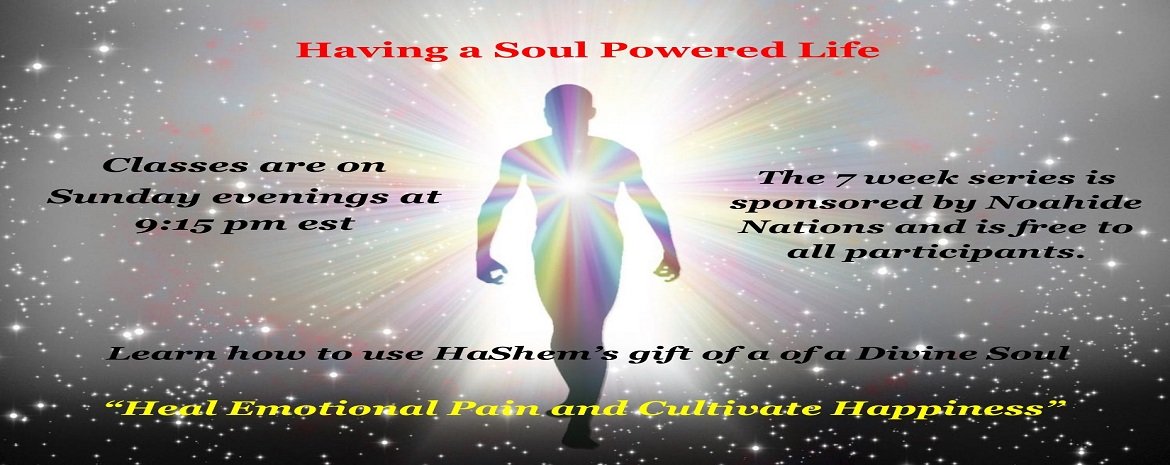And He Called - And He Called: Sources
- Category: General
- Hits: 3914
Article Index
____________________________
[1] Genesis 18:19 Hertz, J.H., ed. The Pentateuch and Haftorahs. Soncino Press, London,. 1992. This translation will be used for all quotes from the Torah unless specified.
[2] Genesis 17:19
[3] Genesis 15:16
[4] Hertz, Exodus. 6:3, p. 232
[5] Hertz, Exodus. 6:20, p. 234
[6] See the Rambam’s (Moses Maimonides) explanation in The Guide for the Perplexed chap. LI-LX p. 68-87 on the danger of ascribing attributes to G-d.
[7] See Genesis 15:6 where G-d promises Abraham that his descendents will be as numerous as the stars in the heavens. This promise is not fulfilled until long after the lifetime of Abraham.
[8] Exodus 6:14-27
[9] Genesis 29:32-35
[10] Genesis 29:32
[11] ibid. v. 33
[12] ibid. v. 34
[13] Exodus 3:7
[14] Exodus 1:15-22
[15] ibid. v. 9-14
[16] ibid. 6:7
[17] Genesis 15:13
[18] Exodus 12:40
[19] Exodus 7:7
[20] Jim Long in his book The Riddle of the Exodus gives a fuller account of this controversy touching on the traditional number of 210 years as the time Israel was in Egypt. Long, for example, dealing with the difference between four hundred and four hundred and thirty years says, “There is no discrepancy according to Seder HaOlam. It reveals that the added thirty years is reckoned by counting from the time that the promise was given to Abraham…a promise made thirty years before the birth of Isaac.” Long, James D. The Riddle of the Exodus. Lightcatcher Books. Springdale, Arkansas. chap. 14,. p. 141
[21] The Rambam notices that Onkelos “…understood Elohim in the above passage to signify “angel,” and that for this reason he did not hesitate to translate literally, “I will go down with thee to Egypt.” Do not think it strange that Onkelos should have believed the Elohim, who said to Jacob, “I am God, the God of thy father” (ib. 3), to be an angel, for this sentence can, in the same form, also have been spoken by an angel. Thus Jacob says, “And the angel of G-d spake unto me in a dream, saying, Jacob. And I said, Here am I,” etc. (Genesis 31:11); and concludes the report of the angel’s words to him in the following way, “I am the God of Bethel, where though anointedst the pillar, and where thou vowedst a vow unto me” (ib. 13), although there is no doubt that Jacob vowed to God, not to the angel. It is the usual practice of prophets to relate words addressed to them by an angel in the name of God, as though God Himself had spoken to them. Such passages are all to be explained by supplying the nomen regens , and by considering them as identical with “I am the messenger of the God of thy father,” “I am the messenger of God who appeared to thee in Bethel,” and the like. Friedlander, M. trans. Moses Maimonides,The Guide for the Perplexed. This translation will be used throughout unless specified. chap. XXVII,. p. 36. See also Exodus 4:15 where Aaron is called Moses’ ‘mouth.’
[22] Exodus 4:16
[23] For more information see “On Prophecy”—coming soon[24] As for the principle which I laid down, that preparation and perfection of moral and rational faculties are the sine qua non, our Sages say exactly the same: “The spirit of prophecy only rests on persons who are wise, strong, and rich.” We have explained these words in our Commentary on the Mishnah, and in our large work. The Guide for the Perplexed. chap. XXXII,. p. 220
[25] According the Rambam, “We have thus described three kinds of perfection: mental perfection acquired by training, perfection of the natural constitution of the imaginative faculty, and moral perfection produced by the suppression of every thought of bodily pleasures, and of every kind of foolish or evil ambition. These qualities are, as is well known, possessed by the wise men in different degrees, and the degrees of prophetic faculty vary in accordance with this difference.” The Guide for the Perplexed.
[26] Num.12:6-8
[27] The Guide for the Perplexed. chap. XXXV,. p. 224.
[28] The Rambam takes Exodus 23:20 and Deut. 18:18 and compares their statement to show that there is a connection between the two to draw out a principle that G-d speaks to prophets through an angel--not directly. Exodus 23 is a command that the Children of Israel obey the angel that G-d will send to them. Deuteronomy 18:18 commands Israel to obey the prophet that G-d sends to them is identical to the phrase in Exodus. This leads the Rambam to conclude that Exodus is referring to a prophet also. The angel that G-d sends to Israel communicates through the prophet. Israel is exhorted to obey the words of the prophet who is relaying the words of the angel of G-d. “For there is no doubt that the commandment is given to the ordinary people, to whom angels do not appear with commandments and exhortations, and it is therefore unnecessary to tell them not to disobey him…Here a principle is laid down which I have constantly expounded, viz., that all prophets except Moses receive the prophecy through an angel. Note it.” Rambam, chap. XXXIV,. p. 223
[29] The Rambam provides proof for the difference between Moses and those before and after him. ‘That his prophecy was distinguished from that of all his predecessors is proved by the passage, “And I appeared to Abraham, etc., but by my name, the Lord, I was not known unto them” (Exodus 6:3). We thus learn that his prophetic perception was different from that of the Patriarchs, and excelled it; a fortiori ( even more) it must have excelled that of other prophets before Moses. As to the distinction of Moses’ prophecy from that of succeeding prophets, it is stated as a fact, “And there arose not a prophet since in Israel like unto Moses, whom the Lord knew face to face” (Deut. 34:10). It is thus clear that his prophetic perception was above that of later prophets inIsrael, who are “ a kingdom of priests and a holy nation,” and “in whose midst is the Lord”; much more is it above that of prophets among other nations. ‘ The Guide for the Perplexed. chap. XXXV,. p. 224
[30] Numbers 12:6-8
[31] “…in the sight of all Israel.” (Deut. 34:12)
[32] “in all the signs and the wonders, which the LORD sent him (Moses) to do in the land of Egypt, to Pharaoh, and to all his servants, and to all his land…” and “…in the sight of the nations…” (Lev. 26:45)
[33] Exodus 7:3, For more information see “Free Will and the Sovereignty of God”—coming soon
[34] Rabbi Moshe Chayim Luzzatto
[35] Ramchal states, “God’s purpose in creation was to bestow of His good to another…Since God desired to bestow good, a partial good would not be sufficient. The good that He bestows would have to be the ultimate good that His handiwork could accept. God alone, however, is the only true good, and therefore His beneficent desire would not be satisfied unless it could bestow that very good, namely the true perfect good that exists in His intrinsic essence.” Kaplan, Aryeh. Trans. The Way of God. Feldheim publishers, Jerusalem. 1988. I.2.1. This translation will be used throughout.
[36] I Sam. 2:9
[37] Exodus 7:3, Deut. 2:30, and Josh. 11:20 is the Tanach’s catch phrase that indicates such a wicked individual.
[38] These signs to Israel are found in Exodus 4:2-9. The performance of two of these signs before Pharaoh takes place in Exodus 7:8-22
[39] The Sforno in his commentary on Exodus 4:2 draws sees that the sign of the serpent and of the leprous hand are related. As the Sforno says, “What is this in your hand? A rod is inanimate whereas a hand is alive, but I (God) Who can destroy and bring to life, will cause the (living) hand to be as dead through leprosy, and grant life to the inanimate rod.” Pelcovitz, Rabbi Raphael. trans. Sforno: Commentary on the Torah. p. 264.


 French (FR)
French (FR)  English (UK)
English (UK) 




